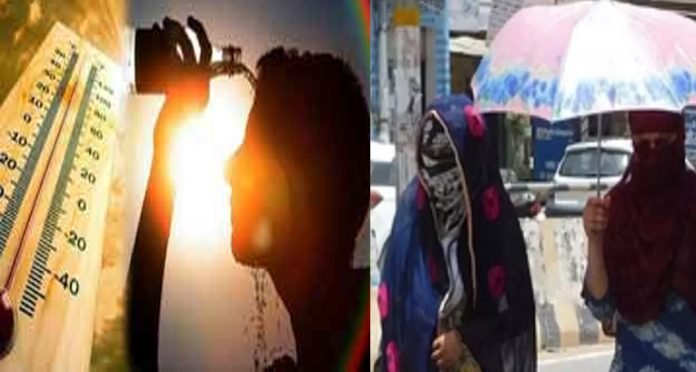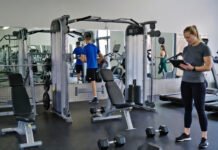The temperature is soaring across the country, and the relentless heat wave shows no sign of abating. The blistering sun and oppressive heat are making daily life increasingly challenging for many. With heat wave alerts issued in numerous states, the threat of dehydration and heatstroke is at its peak. It is crucial to minimize exposure to direct sunlight. However, health issues in summer are not solely caused by the heat. Often, we inadvertently make certain mistakes that can exacerbate our health problems.
Avoid Consuming Cold Items Immediately
In the scorching heat, it is incredibly tempting to reach for cold water, refrigerated drinks, or ice cream as soon as we get home. However, consuming these items right after coming in from the sun is a significant mistake. The body’s temperature is already elevated due to the extreme heat, and introducing cold substances can cause a sudden change in body temperature. This abrupt shift can lead to digestive issues, sore throat, and even a weakened immune response.
Instead, opt for room-temperature water or drinks initially. Allow your body to acclimatize to the indoor temperature before indulging in colder beverages or foods. This gradual approach helps maintain the body’s internal balance and prevents unnecessary health complications.
Refrain from Taking an Immediate Cold Bath
Taking a refreshing cold shower after being out in the sun sounds delightful, but it can actually be detrimental to your health. A sudden drop in body temperature can lead to muscle cramps, headaches, and even hypothermia in extreme cases. It’s essential to allow your body to cool down naturally before taking a bath.
We recommend sitting in a cool, shaded area for a few minutes and drinking some water. Once your body temperature has normalized, you can enjoy a lukewarm shower, which will help you feel refreshed without causing any shock to your system.
Avoid Sitting Directly in Front of AC or Cooler
After enduring the scorching heat outside, sitting in front of an air conditioner or cooler seems like the perfect remedy. However, this sudden exposure to cold air can be harmful. A rapid change in temperature can trigger respiratory issues, including colds, coughs, and allergies. It is better to spend some time in a room with a fan to allow your body to gradually adjust to the indoor environment.
Once you feel your body temperature has stabilized, you can then enjoy the cool air from the AC or cooler. This method helps in preventing sudden temperature shocks and promotes a healthier transition from outdoor to indoor environments.
Avoid Eating Heavy Food
The summer heat makes it difficult to digest heavy and fried foods, especially after returning from the sun. Consuming such foods can lead to indigestion, bloating, and discomfort. It’s important to eat light, nutritious meals that are easy to digest and provide the necessary hydration.
Opt for meals rich in fruits, vegetables, and curd. These foods not only help in cooling the body but also keep you hydrated and energized. Light meals like salads, smoothies, and yogurt-based dishes are excellent choices for maintaining health during the hot summer months.
Hydration: The Key to Surviving the Heat
Staying hydrated is paramount during a heat wave. Dehydration can occur rapidly, leading to severe health issues such as heat exhaustion and heatstroke. It’s crucial to drink plenty of fluids throughout the day. Water is the best choice, but electrolyte-rich drinks like coconut water and sports drinks can also be beneficial.
Avoid caffeinated and sugary beverages as they can lead to further dehydration. Instead, infuse your water with slices of cucumber, lemon, or mint for a refreshing and hydrating drink. Keeping a water bottle with you at all times and taking small sips regularly can help maintain optimal hydration levels.
Dress Appropriately for the Heat
Wearing the right clothing can make a significant difference in how your body handles the heat. Opt for light-colored, loose-fitting, and breathable fabrics such as cotton and linen. These materials allow air to circulate and help keep your body cool.
Avoid dark-colored clothes as they absorb more heat, and steer clear of synthetic fabrics that can trap heat and moisture, leading to discomfort and skin irritation. A wide-brimmed hat and sunglasses can also protect you from the harsh sun rays.
Limit Outdoor Activities During Peak Hours
The sun is most intense between 10 AM and 4 PM. If possible, schedule outdoor activities for the early morning or late evening when temperatures are cooler. If you must be outside during peak hours, take frequent breaks in the shade and drink plenty of fluids.
Using sunscreen with a high SPF is essential to protect your skin from UV damage. Reapply sunscreen every two hours, especially if you are sweating or swimming. Protective measures like these can help prevent sunburn and heat-related illnesses.
Recognize the Signs of Heat-Related Illnesses
Understanding and recognizing the symptoms of heat-related illnesses can save lives. Heat exhaustion can manifest as heavy sweating, weakness, dizziness, nausea, and headaches. If you or someone else exhibits these symptoms, it’s crucial to move to a cooler place, drink water, and rest.
Heatstroke is more severe and requires immediate medical attention. Symptoms include high body temperature, confusion, seizures, and loss of consciousness. In such cases, call emergency services immediately and try to cool the person down with ice packs or cool cloths until help arrives.
Maintain a Healthy Diet
Eating a well-balanced diet is vital for maintaining energy levels and overall health during a heat wave. Include foods that are high in water content like watermelon, cucumbers, and oranges. These foods help keep you hydrated and provide essential vitamins and minerals.
Incorporating leafy greens, whole grains, and lean proteins into your meals can support your body’s nutritional needs and improve your ability to cope with the heat. Avoid heavy, greasy foods that can slow you down and make you feel sluggish.
The relentless heat wave poses significant health risks, but with careful planning and mindful practices, we can minimize its impact. Avoiding immediate consumption of cold items, refraining from sudden cold baths, steering clear of direct AC exposure, and choosing light, nutritious meals are crucial steps. Stay hydrated, dress appropriately, limit outdoor activities during peak hours, and recognize the signs of heat-related illnesses. By following these guidelines, we can stay healthy and safe during the sweltering summer months.
















